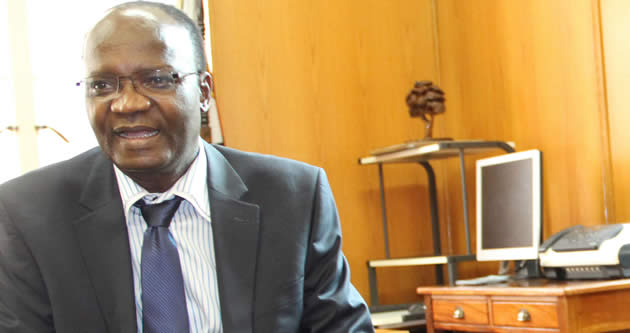Zim improves global competitiveness


South African President Jacob Zuma speaks at the opening plenary session of the World Economic Forum (WEF) on Africa in Cape Town yesterday. Zimbabwe is represented by business leaders such as Dairibord Holdings chief executive Mr Anthony Mandiwanza and Meikles chief executive Mr John Moxon. — Reuters/Sumaya Hisham
Victoria Ruzvidzo in Cape Town, South Africa
Zimbabwe has moved seven places up the ladder to position 124 on the Global Competitiveness ranking as factors of positive policy shifts, institutional strengthening and an improved macro-economic environment begin to take effect.
The Global Competitive Report released here yesterday showed that although the country was still lowly ranked out of 144 countries, it had significantly improved from position 131 previously. This happening at a time when Africa’s competitiveness had largely remained stagnant.
This rise in ranking comes at a time Zimbabwe is working on strategies to attract foreign direct investment, among other initiatives espoused in the Zimbabwe Agenda for Sustainable Socio-Economic Transformation to revive the economy.
Mauritius, on position 39, emerged as Africa’s most competitive economy, followed by South Africa (56), Rwanda (62), Botswana (74) and Namibia (88).
At the global level, the most competitive was Switzerland followed by Singapore, United States of America, Finland, Germany and Japan.
In an interview on the sidelines of the launch at the World Economic Forum on Africa yesterday, the WEF economist and co-author of the report Ms Caroline Galvan said Zimbabwe was on the right path but needed to improve its competitiveness significantly.
“Zimbabwe needs to take care of the basics. Its education must take care of business sector needs, providing the skills. It also needs to sort its infrastructure,” she said.
The competitiveness index looked at a country’s institutions, infrastructure development, the macro-economic environment and health and primarily education in determining competitiveness.
Other factors included higher education and training, good market efficiency, labour market efficiency, financial market development, technological readiness, market size, business sophistication and innovation.
With a Gross Domestic Product of $13 billion and a population of about 13,1 million in the review period, Zimbabwe’s GDP per capita (which measures total output, dividing the GDP and the number of people) stood at $987,40.
The country expects the economy to grow by 3,2 percent this year, with drought depressing growth.
Zimbabwe’s policy inconsistency and discord within Government in some instances has often impacted negatively on its competitiveness and ability to attract investment. An improvement has, however, been noted in this regard in the last few months.
The country scored highly in the health and primary education, earning five points out of seven followed by an improved macro-economic environment which garnered 4,5 points.
Goods marketing efficiency scored 3,6 points out of 7 while financial market development was at 3,4 points. Business sophistication and institution were at 3,3 points each with higher education and training and labour market efficiency scoring 3,2 points each.
Areas that scored very lowly were technological readiness at 2,9 points, innovation (2,6), infrastructure (2,5) and market size (2,3).
The competitiveness report noted that in view of Africa’s young and growing population, labour intensive sectors such as agriculture needed to play a larger role in the continent’s transformation.
“In recent years we have seen some of Africa’s leading economies make very promising progress in terms of driving growth through the enabling of markets.
However, sustainable growth must be built on a solid foundation and this means strong institutions, good infrastructure and targeted investments in health, education and skills,” said Ms Galvan.
Presently prospects for long-term and sustainable growth in Africa were under threat from weaknesses in the core conditions necessary for competitive and productive economies.
This was despite outwardly healthy looking growth rates in many parts of the continent.
The report, produced jointly by the African Development Bank, the World Bank, the World Economic Forum and the Organisation for Economic co-operation and Development, also combines data from the Global Competitiveness Index with studies on key areas of economic activity in Africa which are agricultural productivity, services sector growth and global and regional value chains.
Zimbabwe is represented here by business leaders such as Dairibord Holdings chief executive Mr Anthony Mandiwanza and Meikles chief executive Mr John Moxon. Finance and Economic Development Minister Patrick Chinamasa was lined up to head the Zimbabwe delegation.










Comments